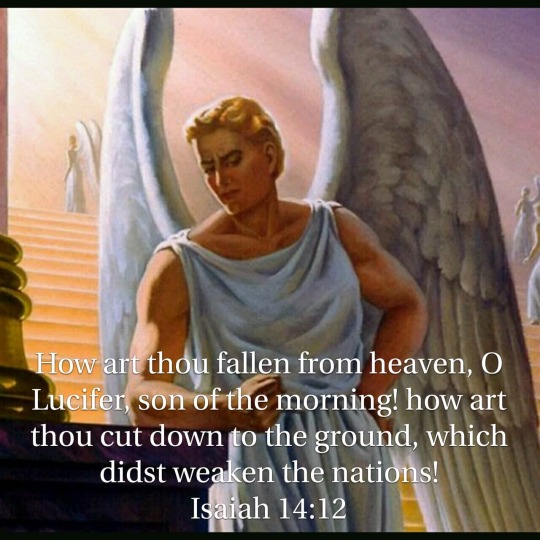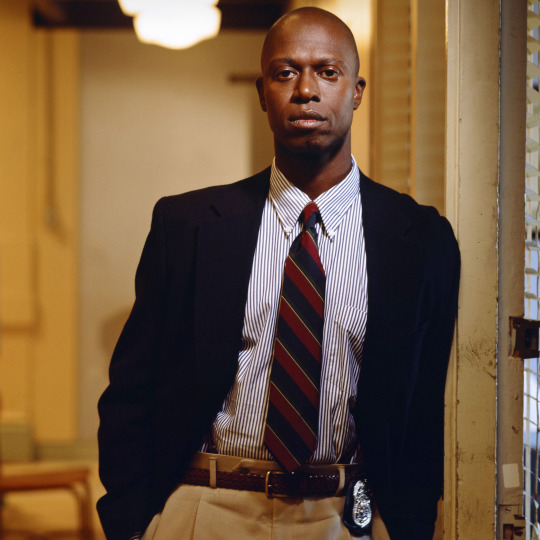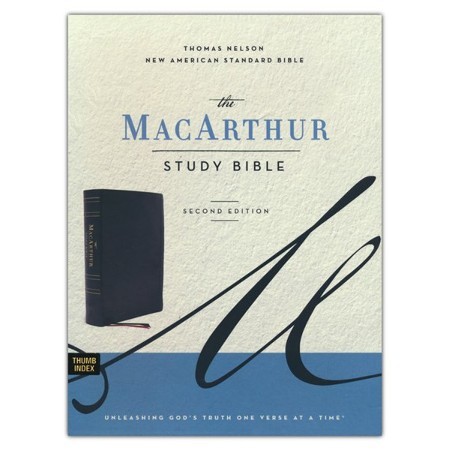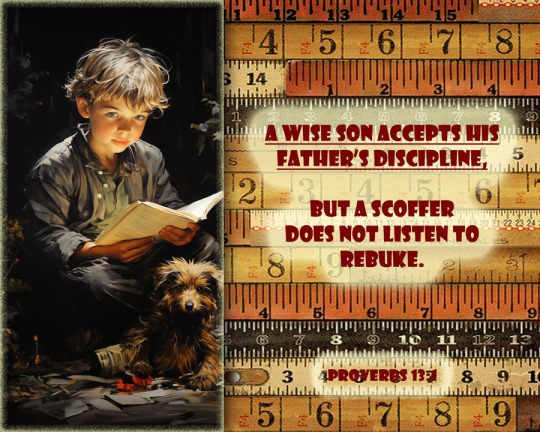#new american standard bible
Text

The Eternal God
Art Thou not from everlasting, O LORD, my God, my Holy One?
— Habakkuk 1:12a | New American Standard Bible 1977 (NASB77)
New American Standard Bible Copyright © 1960, 1962, 1963, 1968, 1971, 1972, 1973, 1975, 1977, 1995 by The Lockman Foundation. All rights reserved.
Cross References: Genesis 21:33; Deuteronomy 32:4; Deuteronomy 33:27; Psalm 90:2; Psalm 102:24; Psalm 118:17; Isaiah 10:5
#Lord#God#Holy One#everlasting#eternal#Habakkuk 1:12a#Book of Habakkuk#Old Testament#NASB77#New American Standard Bible#The Lockman Foundation
14 notes
·
View notes
Quote
I will bless the LORD who has advised me;
Indeed, my mind instructs me in the night.
Psalm 16:7 NASB (2020)
#bible verse#blessings#advice#counsel#wisdom#our hearts#the body#psalm 16#new american standard bible#psalms#psalms of david#miktam
16 notes
·
View notes
Text
NASB Zondervan Study Bible!!!
We need to study God's Word on a daily basis. The "NASB Zondervan Study Bible"" will give us the truth on what God wants to speak to us through His Word. By studying His Word, the relationship we have with God will grow stronger. Study His Word today!!!
God wants us in His Word daily. By reading His Word, our relationship can grow stronger. To get into God’s Word, we can read the “NAS Zondervan Study Bible”. This Bible will give you greater clarification on what God wants to speak to you. The New American Standard Bible is the most literal translation of the Holy Scriptures. By studying this Bible, you spirit will receive truth as you study…

View On WordPress
#NAS#NAS Zondervan Study Bible#NASB#NASB Zondervan Study Bible#New American Standard#New American Standard Bible
0 notes
Text
For three hours as a tornado passed over our heads, with all of us crammed into a tiny tornado shelter, I read the Bible to my family. Reading Exodus gave us solace. We could not get enough.
Because it’s funny as HELL. God is sooo repetitive? And he seems to forget his covenants so quickly? And he tries to kill Moses AFTER giving Moses the sacred sign of the burning bush. And the burning bush is the angel of the lord in one line, the lord himself in the next. And the sorcerer priests of Egypt are able to do a bunch of Gods miracles, but one of them is, bafflingly, turning the water of the Nile into blood — after God has already done that. Like. I, too, can turn blood into blood. Also apparently Pharaoh is more offput by having frogs in his bed than by the fact that the main source of Egypt’s drinking water is blood. And God HARDENED THE PHARAOHS HEART forcing the Pharaoh to not let the Israelites go. And it’s implied that God lets the Israelites go through the first few plagues and only after the gnat plague does he spare them. That’s not even scratching the surface.
#my translation was the New American Standard Bible which is generally regarded to be accurate#it is also a literalistic translation#Bible#theology#exodus#paperl’s
1 note
·
View note
Text

“How art thou fallen from heauen (o Lucifer) thou faire mornige childe? hast thou gotten a fall euen to the grounde, thou that (notwithstondinge) dyddest subdue the people?”
-The Coverdale Bible 1535
“How art thou fallen from heauen (O Lucifer) thou faire mornynge childe? how hast thou gotten a fall euen to the grounde, and art become weaker then the people?”
- The Great Bible 1539
“How art thou fallen from heaven, O Lucifer, son of the morning? and cut down to the ground, which didst cast lots upon the nations?”
-Geneva Bible 1560
“How art thou fallen from heaven, O Lucifer, son of the morning! how art thou cut down to the ground, which didst weaken the nations!
- King James Version 1611
“How you are fallen from heaven, O Day Star, son of Dawn! How you are cut down to the ground, you who laid the nations low”
-English Revised Version 1885
“How art thou fallen from heaven, O day-star, son of the morning! how art thou cut down to the ground, that didst lay low the nations!”
-American Standard Version 1971
“How you have fallen from heaven, morning star, son of the dawn! You have been cast down to the earth, you who once laid low the nations!”
-New International Version 1973
“How you are fallen from heaven, O Lucifer, son of the morning! How you are cut down to the ground, You who weakened the nations!”
- New King James 1982
“How you are fallen from heaven, O Day Star, son of Dawn! How you are cut down to the ground, you who laid the nations low!”
- English Standard Version 2002
Be careful!! God had made the Bible to be understood plainly. Overtime men had changed words and or phrases thinking that it’s a necessity to be more plain, while in reality their mystifying that which is plain due to traditions. Gods word as a whole, is a perfect chain, one portion linking into and explaining another. True seekers for truth need not err, for not only is the Word of God plain and simple in declaring the way of life, but the Holy Spirit is given as a guide in understanding the way to life therein revealed.
#seventhdayadventist#jesus christ#bible verse#christianity#christians#god#religion#scripture#biblical#god's love#love#faith in the lord#faith in jesus#faith in god#keep the faith#christian faith#faith#faithinchrist#bibleverse#bible reading#biblestudy#the bible#bible scripture#bible quote#bible study#bible#bibleprophecy#10 commandments#holy bible#christian bible
13 notes
·
View notes
Note
The KJV is a bad translation?
the kjv is, as i understand it, a particularly poor translation for the modern english speaker. and probably not a great translation even for its day.
some of this is a historical problem. the kjv is a lightly edited revision of the bishop's bible; by the time it was put into print its language was already a hundred years out of date.
some of this is a time marches on problem: our understanding of the source texts and the number of manuscripts available to us to analyze is simply much better now than it was back when the kjv/bishop's bible/other early vernacular bibles were printed. not to mention our understanding of the historical context of those texts as furnished by, e.g., archeology.
some of this is a language marches on problem: "tabernacle" is from a Latin word meaning "small hut," which was probably a fine way to translate the hebrew word used for the dwelling place of god back in the sixteenth century, but now, thanks in part to its use in translations of the bible, basically only has a specialized religious meaning that obscures more than it illuminates when used in conservative translations of the bible. there are english-language turns of phrase in the kjv that are now consistently misunderstood just because standard english usage has changed sufficiently in the intervening centuries to alter the fundamental meaning of some passages.
and some of this is a dogma problem: there are passages in the bible that religious publishers with an agenda will insist on mistranslating because the plain meaning of the text is awkward for their particular dogmas. because of the role of the kjv in the second great awakening and american protestantism's fixation on this version of the text, there is the particular pathology of the "kjv-only" movement in american protestantism which insists that the kjv is not only fine, but is actually the best and only good translation of the bible and all the other english translations are corrupted by the devil or something, idk.
what translation of the bible is best probably depends on what you want to use the bible for (devotional purposes vs critical understanding of hte new testament vs critical understanding of the hebrew bible, etc.), but one can definitely do better than a translation published in the seventeenth century.
35 notes
·
View notes
Text
"In 1946, the term 'homosexuals' appeared for the first time in an English Bible. This new figure appeared in a list of sinners barred--according to a verse in the Apostles Paul's first epistle to the Corinthians--from inheriting the kingdom of God. The word change was made by leading Bible scholars, members of the translation committee that labored for over a decade to produce the Revised Standard Version (RSV) of the Bible. With an approach inspired by text-critical scholarship, many of their choices upset readers of the older King James Version, the favored Bible of Protestant America since the colonial era. Amid the outrage over other changes--to the red-letter words of Jesus and the old Shakespearean idiom--another modernizing innovation went virtual unremarked. Two enigmatic Greek nouns, referenced in the King James as 'effeminate' and 'abusers of themselves with mankind,' now appeared as a single, streamlined 'homosexual.' Subsequent Bible commentaries approached the new term as age-old tradition...
Some Bible readers, however, responded with surprise to this textual change. In everyday use, the verse in I Corinthians had other meanings. The author of a 1956 advice book on how to write sermons recounted the embarrassing tale of one minister's well-loved sermon. That sermon, delivered on various occasions, expanded on the 'general meaning' of the Apostle Paul's reference to the 'effeminate,' which the pastor took as warning against 'the soft, the pliable, those who take the easy road.' The take-away point was that Christians must undertake the difficult path of faith. It was a fine sermon, or so the pastor thought, until he read the RSV. He discovered 'to his amazement and chagrin; that 'effeminate' was translated 'homosexuals.' The confusion was a lesson, the author of this advice book chided, on the need to use recent translations. A check through earlier Bible commentaries confirms that outdated reference tools may indeed have contributed to this pastor's error. An eariler edition of The Interpreter's Bible, published in 1929, said nothing at all about homosexuality in its commentary on the same verse in I Corinthians. It noted that the Apostle Paul was keenly aware of the 'idolatry and immorality' of the pagan world. However, the named vice that so perturbed the apostle was 'self indulgence of appetite and speech,' an interpretation that more readily fit with the pastor's call to a disciplined faith. If Christianity did indeed set itself against homosexuality from the first, then this popular Christian reference text neglected to make that prohibition clear.
Several scholars of American religion have puzzled over the peculiar silences of early twentieth-century Christian texts on the topic of same-sex sexuality. After surveying the published Christian literature of that time, Randall Balmer and Lauren Winner concluded that during those decades, 'the safest thing to say about homosexuality was nothing.' They note that even the published commentary on 'sodomy,' which would seem to be the clearest antecedent to later talk about homosexuality, yielded little that would illumine a long tradition of same-sex regulation. Although many Bible reference tools mentioned that damnable 'sin of Sodom,' the muddled and circular commentary on this 'loathsome vice' offered little that clarified its nature. Historian Rebecca Davis, on her own hunt to find Christian teachings about homosexuality, similarly notes the profound absence in early and mid-twentieth century Protestant literature--and especially in the writing by conservative fundamentalists. 'The extant printed record,' she observes, 'suggests that they avoided discussions of homosexuality almost entirely.' Adding further substance to this void are the findings from Alfred Kinsey's study of the sexual behavior of white American men, conducted between 1936 and 1946. The study suggested that Christians, although well acquainted with the sinfulness of masturbation and premarital intercourse, knew very little about what their churches had to say about same-sex acts. 'There has not been so frequent or so free discussion of the sinfulness of the homosexual in religious literature,' Kinsey wrote. 'Consequently, it is not unusual to find even devoutly religious persons who become involved in the homosexual without any clear understanding of the church's attitude on the subject.' Before the 1940s, the Bible's seemingly plain condemnation of homosexuality was not plain at all.
...
What this book [Reforming Sodom] shows is that the broad common sense about the Bible's specifically same-sex meaning was an invention of the twentieth century. Today's antihomosexual animus, that is, is not the singular residue of an ancient damnation. Rather, it is the product of a more complex modern synthesis. To find the influential generators of that synthesis, moreover, we should look not to fundamentalist preachers but to their counterparts. Religious liberals, urbane modernizers of the twentieth century, studiously un-muddled the confused category of 'sodomitical sin' and assigned to it a singular same-sex meaning. The ideas informing this shift germinated out of the therapeutic sciences of psychiatry and psychology, an emerging field of the late nineteenth century that promised scientific frameworks for measuring and studying human sexual behavior. Liberal Protestants were early adopters of these scientific insights, which percolated through various early twentieth-century projects of moral reform. Among the yield from the convivial pairing of medicine and morality was the midcentury translation of the RSV. The newly focused homosexual prohibitions evidenced the grafting of new therapeutic terms onto ancient roots. The scores of subsequent Bible translations produced in later decades adopted and sharpened the RSV's durable precedent. In the shelves of late twentieth-century translations and commentaries--none more influential than the 1978 New International Version, which quickly displaced the King James as America's best-selling Bible--American Christians read what might be called a 'homosexualized' Bible. Instead of the archaic sinners and enigmatic sodomy talk found in the King James, these modern Bibles spoke clearly and plainly about the tradition's prohibition against same-sex behavior. The subsequent debate about the implications of these self-evident meanings overlooked a nearly invisible truth: the Bible's plain speech about homosexuality issued from a newly implanted therapeutic tongue."
Heather R. White, Reforming Sodom: Protestants and the Rise of Gay Rights
12 notes
·
View notes
Text

The career of the actor Andre Braugher, who has died of lung cancer aged 61, was benchmarked by two performances in police dramas a generation apart. In the groundbreaking drama Homicide: Life on the Street, from 1993 until 1999, he played Detective Frank Pembleton, whose drive immediately made him the anchor of an impressive ensemble cast led by Yaphet Kotto and Ned Beatty. He drew a younger audience with the comedy Brooklyn Nine-Nine (2013-21) as Captain Ray Holt, who takes over a chaotic homicide squad and whose intensity again makes him the heart of the show.
Braugher’s deep, resonant voice and seemingly effortless control drew the respect of all he worked with. David Simon, creator of Homicide and The Wire, said: “I’ve worked with a lot of wonderful actors. I’ll never work with one better.” His classical training, at the Juilliard School in New York, made him a regular at the Public Theater’s Shakespeare in the Park, and indeed his portrayal of Henry V in 1996 won him an Obie (the off-Broadway equivalent of the Tony awards).
He brought the projection of the stage to the small screen. Pembleton was the master of “the Box”, or the interrogation room. He explained to his rookie partner in Homicide (played by Kyle Secor), it was “salesmanship … as silver tongued and thieving as ever moved used cars, Florida swamp land or Bibles. But what I am selling is a long prison sentence.” He dominated those small scenes, but the episode Subway, with Vincent D’Onofrio as a character pushed between subway trains, who will die once the trains are separated, was a two-hander whose intensity might have come from the stage of Beckett, Pinter or Mamet.
In Brooklyn Nine-Nine, as Holt, he played it straight in two senses. The adage of comedy being funniest when played straight gained resonance from Braugher’s ability to show the audience with a gesture or line-reading that he, like you, got the joke. But Holt is also gay. His gayness is never an issue, except as motivation for his progress within the police. It was as if Pembleton were stepping into Kotto’s “Gee” Giardello, a black man with an Italian father who was determined to rise in a white-dominated department.
This drive reflected Braugher’s own background. In the tough neighbourhood of Austin, on Chicago’s West Side, both his parents worked for the government; his father, Floyd, was a heavy equipment operator for the state of Illinois, and his mother, Sally, worked for the US Postal Service. He recalled he might have “pretended I was hard and tough and not square”, but he won scholarships to the Jesuit St Ignatius College prep and then to study mathematics at Stanford University, California. After walking into a student production of Hamlet, and playing Claudius, he decided he wanted to act.
Another scholarship took him to Juilliard. He graduated in 1988 and almost immediately was cast in a TV revival of Kojak, as his assistant. His first film role came in Glory (1989); he was so impressive as the educated Thomas Searles, forced to serve as a private soldier in the all-black regiment commanded by his white friend, that Hollywood came calling, but the parts were standard stereotyical roles. His father had questioned how a black actor would make a living, and Braugher later explained: “I’d rather not work than do a part I’m ashamed of.”
He played the lead in a TV movie, The Court-Martial of Jackie Robinson (1990), playing Robinson, the first African-American player in major league baseball, who earlier in the 1940s, as a US army lieutenant, had refused to ride in the back of a segregated bus; and appeared in another TV film, The Tuskegee Airmen (1995). He was an egotistical actor in Spike Lee’s Get On the Bus (1996), about the Million Man March on Washington DC the year before. In 1998 he won his first Emmy award for playing Pembleton; he was nominated 11 times, and won his second in 2006 for his role in the miniseries Thief.
After Homicide, he starred as a doctor in Gideon’s Crossing (2000-01), as a cop in Hack (2002-04), as a car dealer in the comedy-drama Men of a Certain Age (2009-11) and as the captain of a submarine which goes on the run after he refuses to obey orders to fire nuclear missiles in Last Resort (2012-13). He had another series of remarkable two-handers in a recurring role as Hugh Laurie’s psychiatrist in House, was a defense attorney in episodes of Law and Order: Special Victims Unit, and voiced Governor Woodchuck Coodchuck-Berkowitz in the animated comedy BoJack Horseman.
He made the most of supporting roles in films such as Primal Fear (as Richard Gere’s investigator), Poseidon (captain of the sinking liner), Salt (as the US secretary of defense) and most notably as a New York Times editor in She Said (2022), covering the Harvey Weinstein scandal. He also starred in 10,000 Black Men Named George (2002), the story of the unionisation of Pullman railway porters, who were always called “George” by passengers.
Braugher admitted that his career “could have been larger, but it would have been at the expense of my own life”. He lived in suburban New Jersey with his wife, the actor Ami Brabson (who played Pembleton’s wife in Homicide). He said he wanted his three sons, Michael, Isaiah and John Wesley, raised in a “true context”, away from being a movie star’s offspring in Hollywood.
He is survived by his wife and sons, his brother, Charles, and his mother.
🔔 Andre Keith Braugher, actor, born 1 July 1962; died 11 December 2023
Daily inspiration. Discover more photos at Just for Books…?
14 notes
·
View notes
Text
A Companion to Owls
The season 2 episode 2 minisode title was one I didn't recognise at first, and after a quick bit of digging I found something interesting.
The line is a reference to Job 30:29, variously translated as “I am a brother to dragons, and a companion to owls” (King James Bible), “I am a brother to jackals, And a companion to ostriches” (American Standard Version), or “I have become a brother of jackals, a companion of owls” (New International Version). I'm inclined to believe the King James Bible is what's being used here, both because of the precision of the words in the title, and the clause before it.
The words themselves are, I believe, spoken by Job, talking about his new horrific place in life as a result of the bet, so obviously it's very appropriate to the Bible story that serves as the setting to this minisode. In particular, the line apparently means “my loud complaints and cries resemble the doleful screams of wild animals, or of the most frightful monsters” (i.e. I am alike to the lowest of the low, and I am not listened to and perhaps instead feared).
For the ‘dragons’ translation, it’s worth remembering that “according the 1828 Webster's Dictionary, when used in scripture, 'dragon' seems to refer to a large serpent”. Who do we know that that might refer to?
So while the line is spoken by Job originally, as a minisode title it might as well be talking about Aziraphale - his fears about having fallen/become a demon (his assumption on the rock afterwards) and his new reality about now existing in a grey area on Earth, as a metaphorical brother to (or on the same, low level as) Crowley/Crawley.
(This meta was written late at night after some quick googling, and posted while at work, so apologies if I've made any errors - I'm not a scholar of the Bible by any stretch of the imagination. Feel free to correct me if you have any better Bible knowledge!)
#a companion to owls#meta#freyja talks#job#aziraphale#anthony j. crowley#season 2 spoilers#good omens season 2#season 2
24 notes
·
View notes
Note
a non-FE question from a person with a tenuous familial connection to quebec (anglo father adopted by a québécois couple) who's always curious about the different francophone experiences: my dad spent a lot of time in new orleans and loved it, but how do the new orleans francophones generally regard the québécois? are there any particular culture clashes?
Unfortunately there aren't many actual culture clashes because there's so little contact. Louisiana and Québec are separated by thousands of kilometers and a national border, and everything from vastly different climates to separate experience with resisting forced assimilation has caused us to diverge from one another quite substantially. I'm glad that I've made friends in Québec, and it seems like every week we're discovering some point of commonality we share in spite of everything that divides us, but that's an entirely personal connection that I sought out myself. Just a few days ago for example a few of them were sharing this post on Facebook:

and they asked me to tell them more about Louisiana king cakes, our spin on the traditional French galettes des rois which are still prepared in Québec apparently just as they are in France.
But let's see if I can condense our biggest differences to some bullet points.
Language: Québec is well known for being a majority French-speaking province, whereas Louisiana is...not. Practically all of the Louisianais are fluent English speakers, because starting from the 1870s French in Louisiana was stigmatized and systemically excluded from education, business, and politics. In recent decades there have been attempts at reviving the language, but they've been slow to take root without a foundation in the home to build upon. Both the Louisianais and Québécois practice code switching (the linguistic term for switching between languages in casual conversation), albeit in opposite ways. The Québécois speak mostly French but will include occasional English words and phrases in their speech, whereas as mentioned the Louisianais primarily communicate in English but use a variety of French terms and names as well as direct English translations of French not used in standard English (ex. "making groceries," a literal translation of faire les courses). This stark contrast is because of...
Population and politics: I won't pretend to understand the Québécois political system in any real depth. I do get however that a large part of the reason that they've been able to maintain a limited degree of autonomy as well as preserve their language is that ethnic French people vastly outnumber Anglos in Québec, and Québec constitutes a much larger percentage of Canada's population and economy than Louisiana does the US's, even back in the 19th century when New Orleans was a much larger city relative to the rest of the US than it is today. Beginning shortly after the Louisiana Purchase, Anglo-Americans began moving into northern and central Louisiana, establishing settlements and slowly pushing southward toward and even into New Orleans. This combined with various political maneuvers that progressively weakened Creole control in the area - splitting what are now coastal Mississippi and Alabama, which had initially been settled by the French, off from Louisiana, moving the capital from New Orleans to a then-barely-inhabited upriver border fort: Baton Rouge, which is mostly Anglo-populated despite the name - resulted in the Louisianais having far less control over our own state than what the Québécois have. Compound that with the aforementioned stigmatization of the French language, and many of the Louisianais have been left feeling disenfranchised and unwilling to participate in national politics. Louisiana is a "red state," in US political parlance, because its biggest voting demographic consists of the very same sort of people that make up the surrounding Bible Belt. Speaking of...
Religion: Québec had its Quiet Revolution in the 1960s, largely removing the presence of the Catholic Church and moving closer to France's model of laïcité/secularism. By contrast, Catholicism is still a highly visible element of life and culture in southern Louisiana, and Catholic education continues to be the standard in New Orleans. This is down to several factors, ranging from the poor quality of public services (not helped, surely, by the voters of northern Louisiana who like US conservatives in general recoil in horror from anything that might be dubbed socialism) to a matter of cultural preservation. The Bible Belt is an aggressively Protestant region, dominated by denominations that have historically held Catholics in poor regard. The US at large also has a long history of anti-Catholic discrimination, particularly in large cities like Boston and Chicago where Catholic immigrants formed a large percentage of the working classes. Southern Louisiana, however, has been majority Catholic since the colony's founding over three centuries ago, and presided over by specifically Latin Catholics in spirit if not in actual practice for all that time. The Louisianais have used that to make allies of other Catholic populations who've moved here, mostly the Spanish and Italians but also more recent immigrants like the Vietnamese. While I wouldn't describe most of us as religious in the sense that the US conceives of that term (I'm certainly not), Catholicism is still a crucial part of our heritage and the preservation of this region as a cultural enclave. I've had trolls calling me a conservative religious nut job because I call myself a Catholic, and yet ironically here we associate the Church with the city's decadent and libertine atmosphere. The focus on visual aesthetics, the relaxed attitude toward alcohol and sex and even sin itself...it's all in sharp contrast to the austerity of Bible Belt Protestants who descend upon New Orleans at regular intervals to protest Mardi Gras and Decadence and call us the new Sodom and Gomorrah, etc. And finally...
Climate: I said it before and it's a comparatively much more straightforward issue, but it really does make a difference. When we're in the height of our social season courtesy of mild subtropical winters, Québec is buried under snow. The reverse is true in summer, which in Louisiana is long and lethally hot and humid and plagued by disease-bearing insects and the ever-present threat of hurricanes. This has also affected our cuisine. Louisiana has a rich and internationally-recognized culinary tradition that builds upon a French foundation with a wealth of local innovations based on crops that thrive in this climate as well as the bounty of the Gulf of Mexico. Québec has...poutine. Obviously I'm joking a bit there, but it's telling that there are multiple Louisiana-themed eateries in Montréal - but the reverse is not true. I've always heard that hot weather climates produce richer and more diverse cuisines than cold weather climates, and I suppose that in this case at least it's true.
8 notes
·
View notes
Text

The Sacrifice Averted
He said, “Do not reach out your hand against the boy, and do not do anything to him; for now I know that you fear God, since you have not withheld your son, your only son, from Me.”
— Genesis 22:12 | New American Standard Bible (NASB)
New American Standard Bible Copyright © 1960, 1962, 1968, 1971, 1972, 1973, 1975, 1977, 1995 by The Lockman Foundation. All rights reserved.
Cross References: Genesis 22:2; Genesis 22:13; Genesis 22:16; Job 1:1; James 2:21-22
#Abraham#Isaac#Lord#sacrifice#averted#faithfulness#proven#fear#reverence#God#Genesis 22:12#Book of Genesis#Old Testament#NASB#New American Standard Bible#The Lockman Foundation
12 notes
·
View notes
Quote
Now Ahab told Jezebel everything [kal] that Elijah had done, and how he had killed all [kal] the prophets with the sword [charev]. Then Jezebel sent a messenger [mal'ak] to Elijah, saying, "So may the gods [elohiym] do to me and more so, if by about this time tomorrow I do not make your life [naphsheka] like the life [kenephesh] of one of them."
1 Kings 19:1-2 NASB (2020)
#bible verse#scripture#1 kings 19#kings#rulers#queens#prophets#prophet elijah#killing#execution#schemes#new american standard bible#mal'ak#elohim#nephesh#theology
7 notes
·
View notes
Text
NASB MacArthur Study Bible!!!
We need to study God's Word daily. The "NASB MacArthur Study Bible" will get us into God's Word. By studying the truths and principles found in this Bible, our relationship with God will grow deeper. We need God's Word. Study His Word daily!!!
God wants us in His Word. By studying His Word, our relationship with the Heavenly Father will grow stronger each day. To help us get into God’s Word, we can use the NASB MacArthur Study Bible. This Bible has everything you need to grow in your relationship with Jesus Christ. By reading this Bible, your knowledge of the Heavenly Father, the Son of God, and the Holy Spirit will grow deeper. God…

View On WordPress
#MacArthur Study Bible#NASB#NASB MacArthur Study Bible#New American Standard Bible#Thomas Nelson Bibles
0 notes
Text

[Clay Jones]
* * * *
LETTERS FROM AN AMERICAN
March 30, 2024
HEATHER COX RICHARDSON
MAR 31, 2024
On Tuesday morning, on his social media outlet, former president Trump encouraged his supporters to buy a “God Bless The USA” Bible for $59.99. The Bible is my “favorite book,” he said in a promotional video, and said he owns “many.” This Bible includes the U.S. Constitution, the Bill of Rights, the Declaration of Independence, and the Pledge of Allegiance. It also includes the chorus of country music singer Lee Greenwood’s song “God Bless the USA,” likely because it is a retread of a 2021 Bible Greenwood pushed to commemorate the twentieth anniversary of 9-11.
That story meant less coverage for the news from last Monday, March 25, in which Trump shared on his social media platform a message comparing him to Jesus Christ, with a reference to Psalm 109, which calls on God to destroy one’s enemies.
This jumped out to me because Trump is not the first president to compare himself to Jesus Christ. In 1866, President Andrew Johnson famously did, too. While there is a financial component to Trump’s comparison that was not there for Johnson, the two presidents had similar political reasons for claiming a link to divine power.
Johnson was born into poverty in North Carolina, then became a tailor in Tennessee, where he rose through politics to the U.S. House of Representatives and then the Senate. In 1861, when Tennessee left the Union, Johnson was the only sitting senator from a Confederate state who remained loyal to the United States. This stand threw him into prominence. In 1862, President Abraham Lincoln named him the military governor of Tennessee.
Then, in 1864, the Republican Party renamed itself the Union Party to attract northern Democrats to its standard. To help that effort, party leaders chose a different vice president, replacing a staunch Republican—Hannibal Hamlin of Maine—with the Democrat Johnson.
Although he was elected on what was essentially a Republican ticket, Johnson was a Democrat at heart. He loathed the elite southern enslavers he thought had become oligarchs in the years before the Civil War, shutting out poorer men like him from prosperity, but he was a fervent racist who enslaved people himself until 1863. Johnson opposed the new active government the Republicans had built during the war, and he certainly didn’t want it to enforce racial equality. He expected that the end of the war would mean a return to the United States of 1860, minus the system of enslavement that concentrated wealth upward.
Johnson was badly out of step with the Republicans, but a quirk of timing gave him exclusive control of the reconstruction of the United States from April 15, 1865, when he took the oath of office less than three hours after Lincoln breathed his last, until early December. Congress had adjourned for the summer on March 4, expecting that Lincoln would call the members back together if there were an emergency, as he had in summer 1861. It was not due to reconvene until early December. Members of Congress rushed back to Washington, D.C., after Lincoln’s assassination, but Johnson insisted on acting alone.
Over the course of summer 1865, Johnson set out to resuscitate the prewar system dominated by the Democratic Party, with himself at its head. He pardoned all but about 1,500 former Confederates, either by proclamation or by presidential pardon, putting them back into power in southern society. He did not object when southern state legislatures developed a series of state laws, called Black Codes, remanding Black Americans into subservience.
When Congress returned to work on December 4, 1865, Johnson greeted the members with the happy news that he had “restored” the Union. Leaving soldiers in the South would have cost tax money, he said, and would have “envenomed hatred” among southerners. His exclusion of Black southerners from his calculus, although they were the most firmly loyal population in the South, showed how determined he was to restore prewar white supremacy, made possible by keeping power in the states. All Republican congressmen had to do, he said, was to swear in the southern senators and representatives now back in Washington, D.C., and the country would be “restored.”
Republicans wanted no part of his “restoration.” Not only did it return to power the same men who had been shooting at Republicans’ constituents eight months before and push northerners’ Black fellow soldiers to a form of quasi-enslavement, but also the 1870 census would count Black Americans as whole people rather than three fifths of a person, giving former Confederates more national political power after the war than they had had before it. Victory on the battlefields would be overturned by control of Congress.
Congressional Republicans rejected Johnson’s plan for reconstruction. Instead, they passed the Fourteenth Amendment in June 1866 and required the former Confederate states to ratify it before they could be readmitted to the United States. The Fourteenth Amendment put the strength of the national government behind the idea that Black Americans would be considered citizens—as the Supreme Court’s 1857 Dred Scott decision had denied. Then it declared that states could neither discriminate against citizens nor take away a citizen’s rights without due process of the law. To make sure that the 1870 census would not increase the power of former Confederates, it declared that if any state kept men over 21 from voting, its representation in Congress would be reduced proportionally.
Johnson hated the Fourteenth Amendment. He hated its broad definition of citizenship; he hated its move toward racial equality; he hated its undermining of the southern leaders he backed; he hated its assertion of national power; he hated that it offered a moderate route to reunification that most Americans would support. If states ratified it, he wouldn’t be able to rebuild the Democratic Party with himself at its head.
So he told southern politicians to ignore Congress’s order to ratify the Fourteenth Amendment, calling Congress an illegal body because it had not seated representatives from the southern states. He promised white southerners that the Democrats would win the 1866 midterm elections. Once back in power, he said, Democrats would repudiate the Republicans’ “radicalism” and put his plan back into place.
As he asserted his vision for the country, Johnson egged on white supremacist violence. In July, white mobs attacked a Unionist convention in New Orleans where delegates had called for taking the vote away from ex-Confederates and giving it to loyal Black men. The rioters killed 37 Black people and 3 white delegates to the convention.
By then, Johnson had become as unpopular as his policies. Increasingly isolated, he defended his plan for the nation as the only true course. In late August he broke tradition to campaign in person, an act at the time considered beneath the dignity of a president. He set off on a railroad tour, known as the “Swing Around the Circle,” to whip up support for the Democrats before the election.
Speaking from the same set of notes as the train stopped at different towns and cities from Washington, D.C., to New York, to Chicago, to St. Louis, and back to Washington, D.C., Johnson complained bitterly about the opposition to his reconstruction policies, attacked specific members of Congress as traitors and called for them to be hanged, and described himself as a martyr like Lincoln. And, noting the mercy of his reconstruction policies, he compared himself to Jesus.
It was all too much for voters. The white supremacist violence across the South horrified them, returning power to southern whites infuriated them, the reduction of Black soldiers to quasi-slaves enraged them, and Johnson’s attacks on Congress alarmed them. Johnson seemed determined to hand the country over to its former enemies to recreate the antebellum world that northerners had just poured more than 350,000 lives and $5 billion into destroying, no matter what voters wanted.
Johnson’s extremism and his supporters’ violence created a backlash. Northerners were not willing to hand the country back to the Democrats who were rioting in the South and to a president who compared himself to Jesus. Rather than turning against the Republicans in the 1866 elections, voters repudiated Johnson. They gave Republicans a two-thirds majority of Congress, enabling them to override any policy Johnson proposed.
And, in 1868, the states ratified the Fourteenth Amendment to the Constitution, launching a new era in the history of the United States.
LETTERS FROM AN AMERICAN
HEATHER COX RICHARDSON
#history#Andrew Johnson#Civil War#political#Heather Cox Richardson#Letters From An American#Fourteenth Amendment
4 notes
·
View notes
Text

New American Standard Bible
A wise son accepts his father’s discipline, But a scoffer does not listen to rebuke. Pro 13:1
What does Proverbs 13:1 mean?
A recurring theme in the book of Proverbs is the value of taking good advice (Proverbs 1:7–8; 8:33). The person defined as a "scoffer" is one who sneers or laughs at knowledge instead of learning from it (Proverbs 1:22). Learning from our own mistakes is part of life; choosing to learn from the mistakes of others is especially wise. When a father, or other worthy figure, offers their perspective, it's a good idea to take them seriously (Proverbs 12:1, 15).
Some people carry a superior attitude; they think they know more than the people who try to correct them. If someone goes through life thinking he is beyond reproach, he will face a rude awakening. Pride precedes destruction, according to Proverbs 16:18. In his first letter to Timothy, the apostle Paul tells Timothy a recent convert should not become an overseer because "he may become puffed up with conceit and fall into the condemnation of the devil" (1 Timothy 3:6). Proverbs 29:1 affirms, "He who is often reproved, yet stiffens his neck, will suddenly be broken beyond healing."
BibleRef
6 notes
·
View notes
Text
An audiobook book of The New American Standard Bible finally went off hold at my local library, and I had every intention of reading it, I swear to you, but as soon as they got to the part about the ocean and the sky being the same thing I decided I could learn more about divinity by simply listening to a playlist of marimba music, so I guess I'll just have to go another year hoping that Jesus Christ Superstar covers all the important parts
5 notes
·
View notes